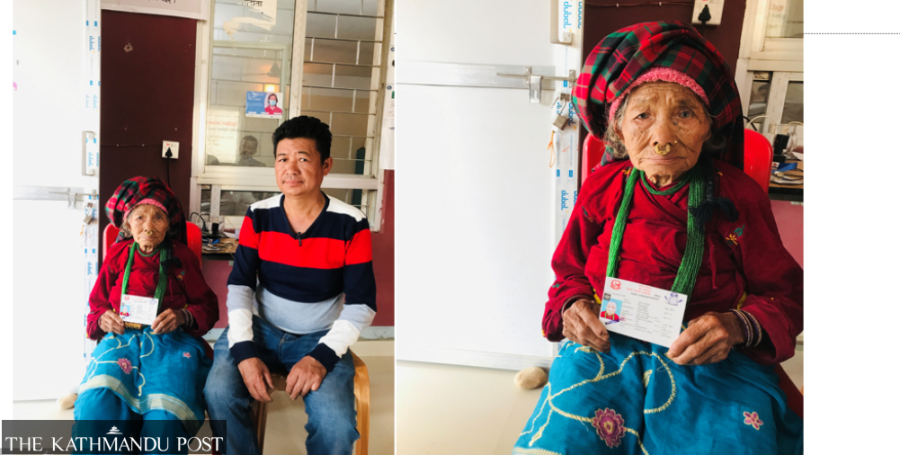National
Relief reaches families of dead migrant workers, years after tragedy
Relatives of Nepali migrant workers who died in Saudi Arabia are now receiving long-overdue relief.
Laxmi Gautam
For years, the family of Birkha Bahadur Yongya of Oyam in Yangwarak Rural Municipality–3, Panchthar, lived with unanswered questions and empty hands. Birkha died in a road accident while working in Saudi Arabia six years ago. His body was repatriated, the mourning rituals performed—but compensation, which he was legally entitled to under Saudi Arabia’s Social Security Insurance Scheme, never came.
It wasn’t until last year, five years later, that his parents finally received the sum of Rs3.3 million. The breakthrough came with the support of Nepal’s Safer Migration Programme (SaMi), a collaborative effort involving local governments, migrant resource centres, and the Nepali embassy in Riyadh.
Birkha’s mother, Sukmaya, who was born in 1943, had never even held a citizenship certificate—a critical requirement for starting the compensation process. With the help of ward chair Bimal Rai and the SaMi programme, she was brought to the district headquarters, issued citizenship documents, and guided through the process. The result: financial relief long due but previously unreachable.
“Because of lack of access and information, the process had stalled for years,” said ward chair Rai. “Once we learned that the family was eligible through the SaMi programme, we immediately stepped in to facilitate it.”
Birkha's story mirrors that of many others. Chandra Bahadur Tamang from Hilihang–7 also died in an accident while working in Saudi Arabia nearly 13 years ago. His family, like Birkha’s, remained unaware of their rights until recently. With SaMi’s coordination, his mother Thagimaya and other dependents were granted compensation of equal amount—Rs3.3 million.
“We didn’t know we could claim compensation through the social insurance scheme. Without SaMi’s help, we’d still be unaware,” shared Thagimaya, reflecting on the years of silence and uncertainty.
In the past year alone, families of 11 deceased migrant workers from Panchthar—including those of Dilli Kumar Saru Magar of Phidim–6, Mohan Jabegu of Phidim–10, and Bir Kumar Mangmul of Phidim–13—have received financial relief through SaMi’s facilitation. More than 50 additional cases are currently in process.
According to Birendra Bhandari, a facilitator with the SaMi programme, the payout in the past year has already approached Rs10 million. The initiative collaborates closely with the local authorities, the Nepali embassy in Saudi Arabia, and community leaders to gather necessary documents and host virtual consultations with the ambassador when required.
Kshomaya Tamang, coordinator of SaMi in Panchthar, highlighted the programme’s broader scope and said, “We not only help families navigate legal and bureaucratic hurdles but also offer legal counselling, follow-up calls, reconciliation between victims and recruiters, skills training, and psychosocial support.”
The SaMi programme is currently active in five key areas—access to information, justice, skills, financial literacy, and psychosocial care—ensuring that migrant workers and their families are not left behind, even after tragedy.
For grieving families, these compensations may not bring back their loved ones, but they offer long-awaited recognition of their loss and a measure of justice in a system that had for too long failed them.




 10.12°C Kathmandu
10.12°C Kathmandu















